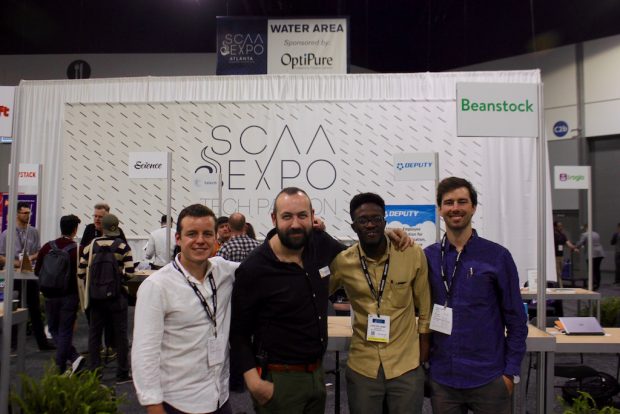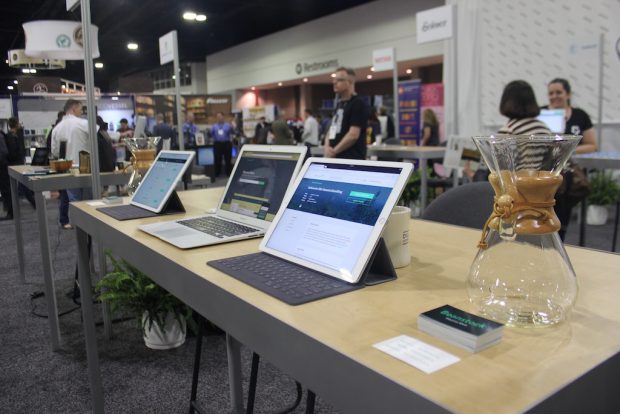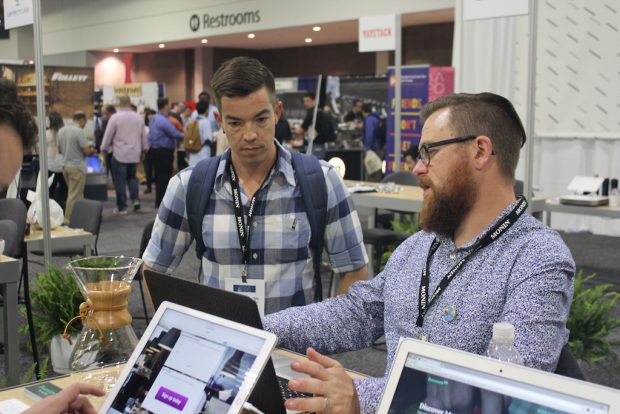As curation is to coffee and its service, disruption is to technology. A tech startup focused on connecting buyers with green coffee sellers is defying both these concepts with a kayak.com-like web app that neither disrupts nor curates, but culls existing data from the web and presents it in an easy-to-process format for coffee roasters seeking to know what coffees are available now, and from whom.
Following a beta testing period that began around the time of the SCAA Event in April, Beanstock has officially launched, offering what the company leaders describe as an intuitive platform that benefits both buyers and sellers of green coffee by aggregating real-time information on U.S. spot coffee stocks and offering clear communication channels between the two parties.
“We started talking with people across the industry and talking about pain points they all have and ways in which technology can make their jobs easier,” said Beanstock’s Nick Spilger, who founded the company along with business partners Lere Williams and Manuel Jimenez after the three met working at a San Francisco tech company. They enlisted the help of Stephen Vick, formerly of Blue Bottle, Intelligentsia and Sustainable Harvest, to help guide the plan to meet the practical needs of people throughout the coffee trade.
Said Jimenez, “We’re trying to be a tech resource, not a disruptor.”

At the SCAA Event, Beanstock co-founders Manuel Jimenez (far left), Lere Williams (center right) and Nick Spilger (far right) pictured with Stephen Morrissey.
For its launch, Beanstock has teamed up with an impressive group of importers who all keep inventories updated on the web, including Ally, Atlas, Axiom, Cafe Imports, Caravela, InterAmerican, IPCoffees, La Minita, Olam, Sustainable Harvest, Trabocca, and Zephyr. Beanstock’s technology aggregates the coffee data, then presents it through its web-based app with an easy-to-navigate, mobile-friendly interface that allows for any number of custom searches. Roasters can search by importer, certification type, processing method, country or region of origin, flavor profile, and more.
“A lot of what we do is provide structure for a lot of unstructured data on coffee around the internet,” said Williams.
When available, roasters can also see additional information and assets such as indexed cupping notes for each coffee, spot quantity, availability and photos. With all this information at their disposal, roasters can then request samples by one click, following which Beanstock will connect buyers with the appropriate contact points for each importer via email. From there, the roaster-importer relationship may take its own shape.
Roasters themselves may be indexed on the site by size, location or type. “We’re hoping to make quality introductions,” said Williams. “When you begin a conversation with a supplier, they’ll be able to understand exactly what they’re going to get from that conversation and adjust their sales process accordingly.”
As the product gains additional users, the Beanstock team said they may tweak existing algorithms or add new ones that will better pick up on the green buying preferences of individual roasters to provide a more customized experienced.
The Beanstock team insists the company has no immediate plans to monetize the service. Instead, Williams, Spilger and Jimenez said for now they’re simply hoping the platform will gain traction throughout the industry, which would in turn give them more insight into where and how roasters and importers are finding practical benefits.
Whether monetization will come in the form of a Spotify- or Pandora-like “premium” subscription for roasters or in higher-level analytics regarding the green coffee trade and supply chain trends for importers, or in something else, has yet to be determined. Said Jimenez, “I think we need to create that value first.”
Nick Brown
Nick Brown is the editor of Daily Coffee News by Roast Magazine.








Comment